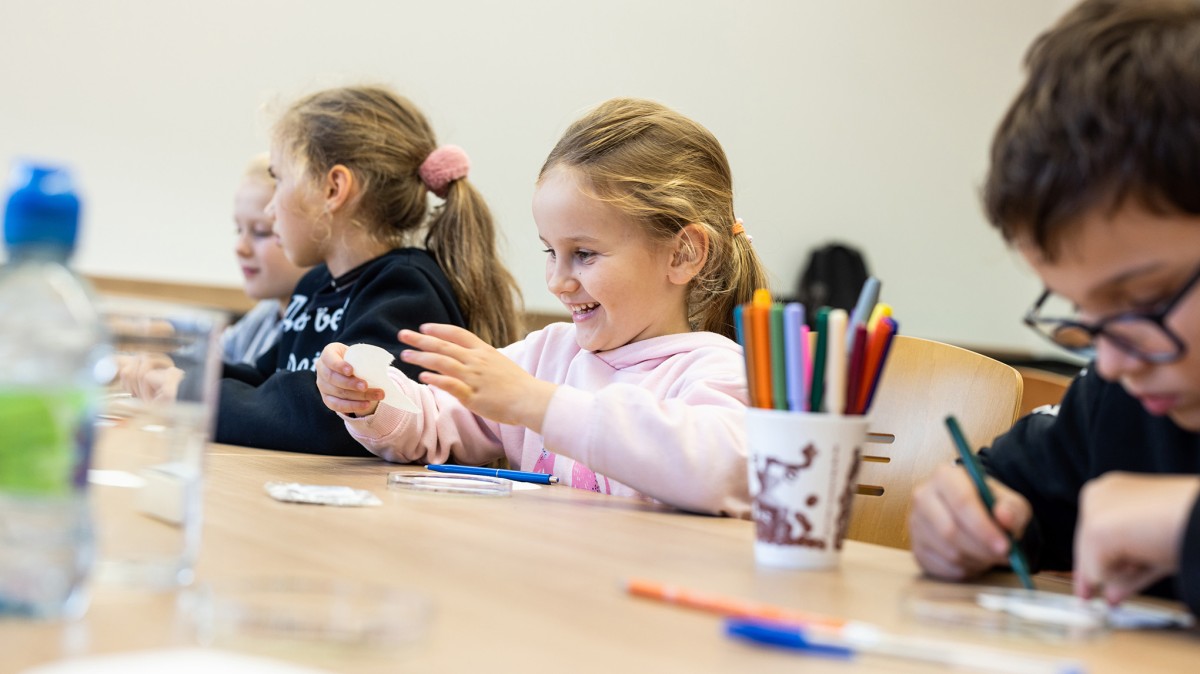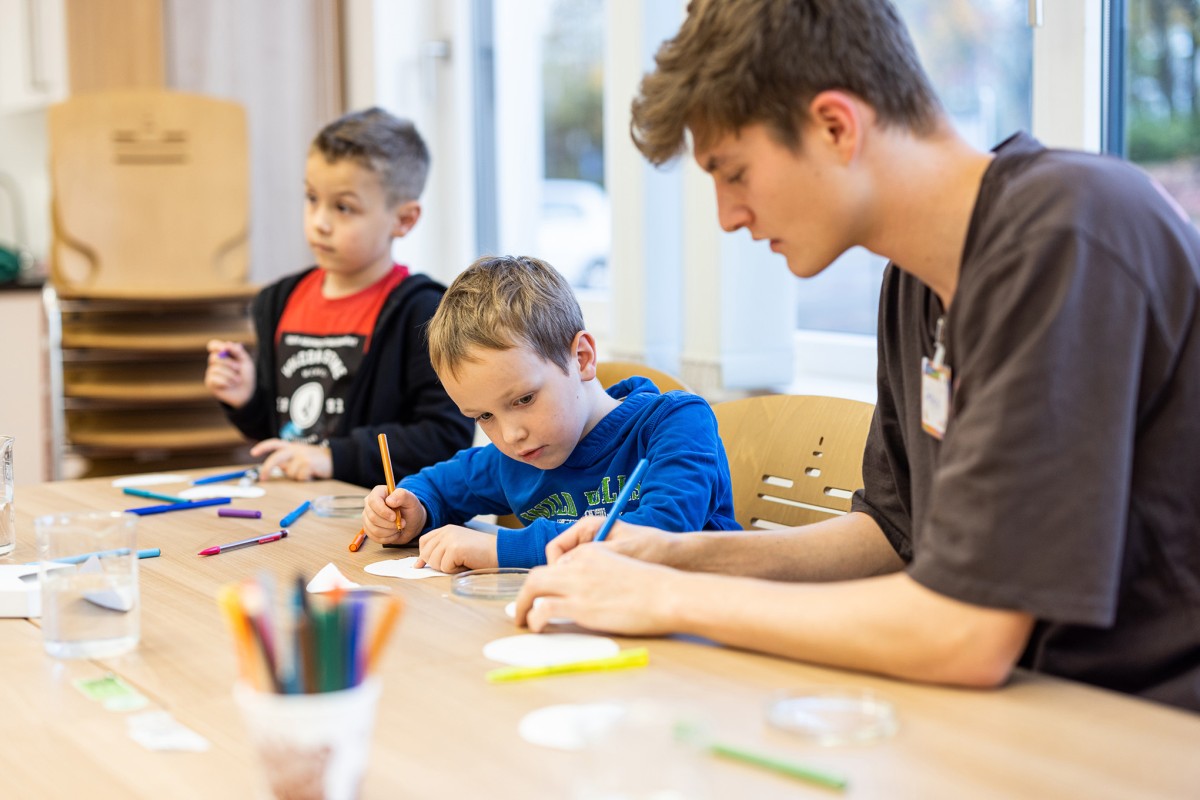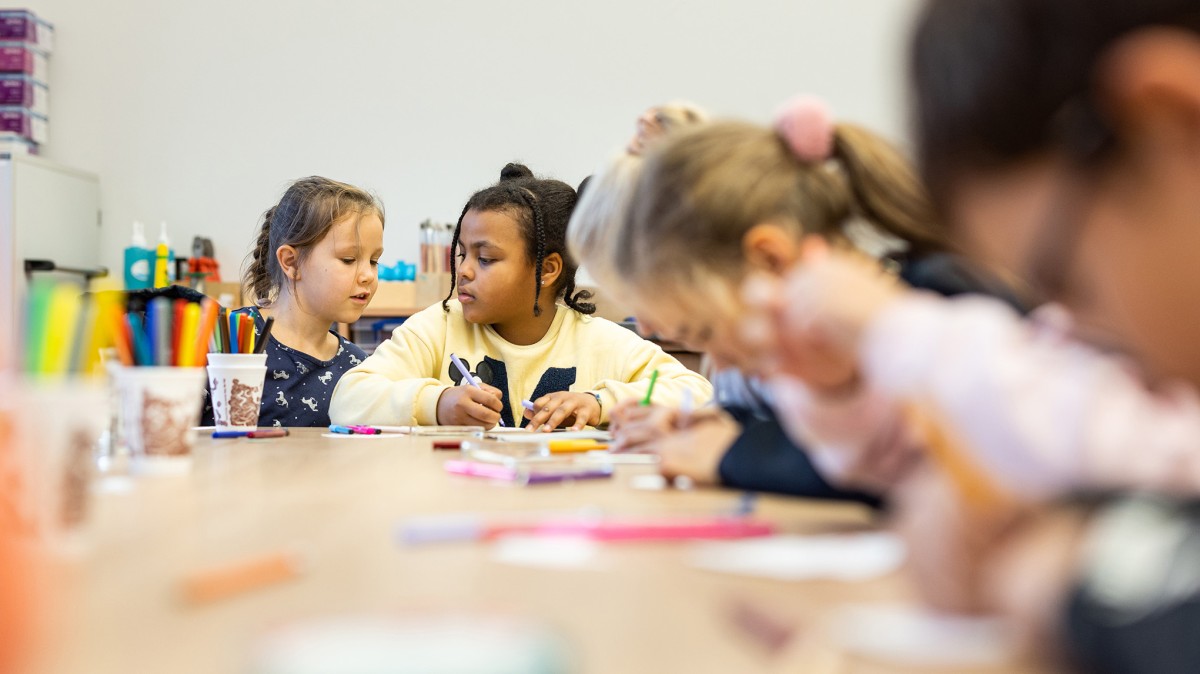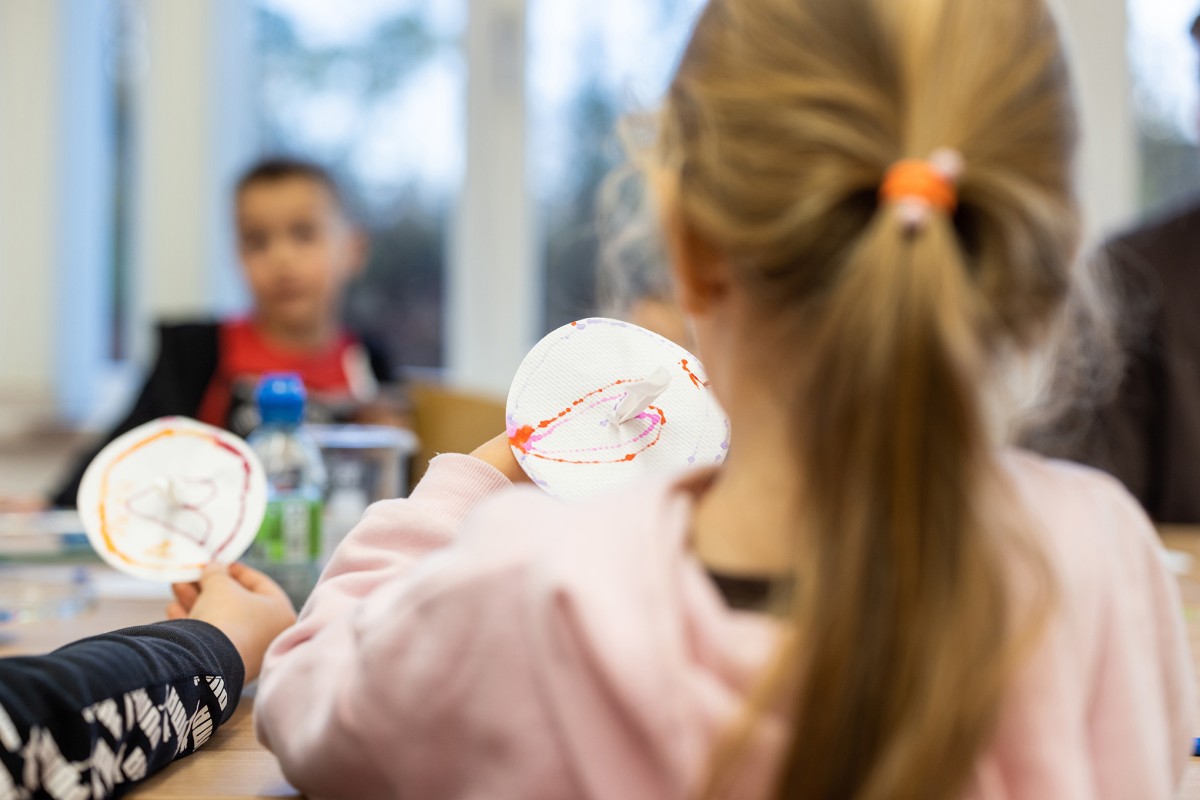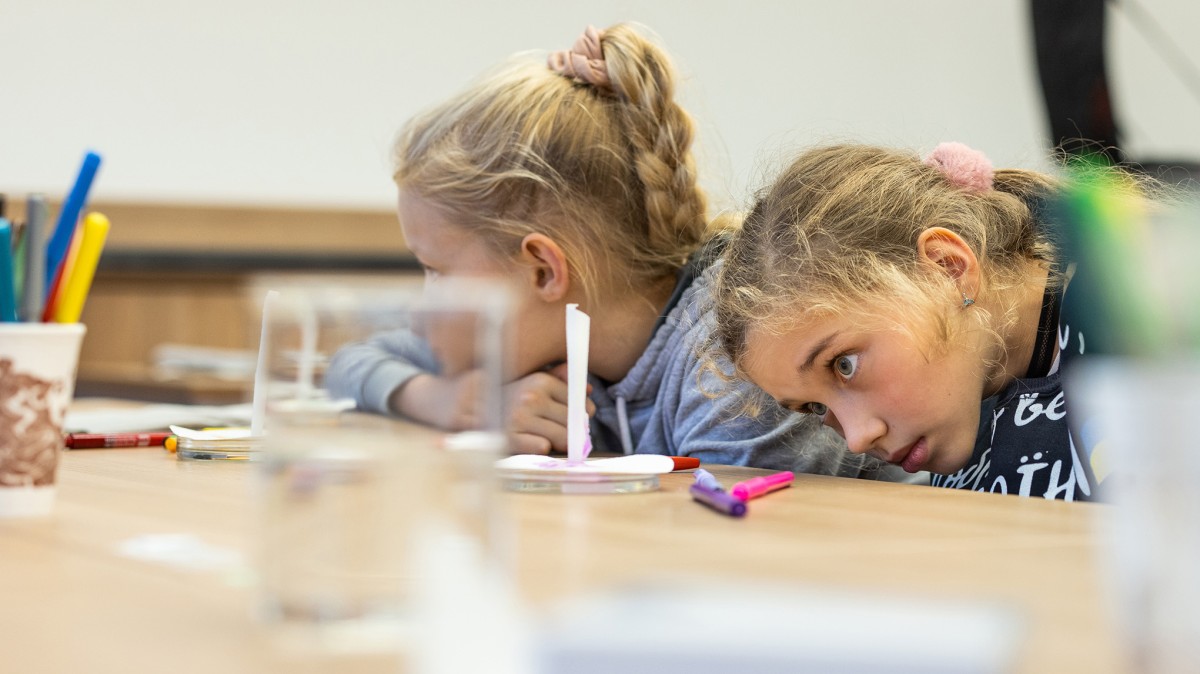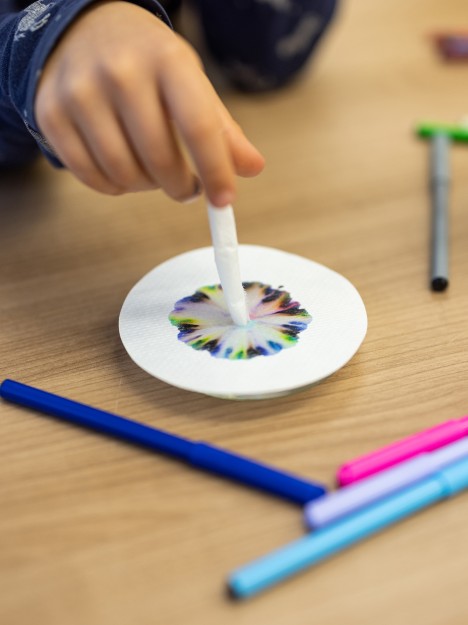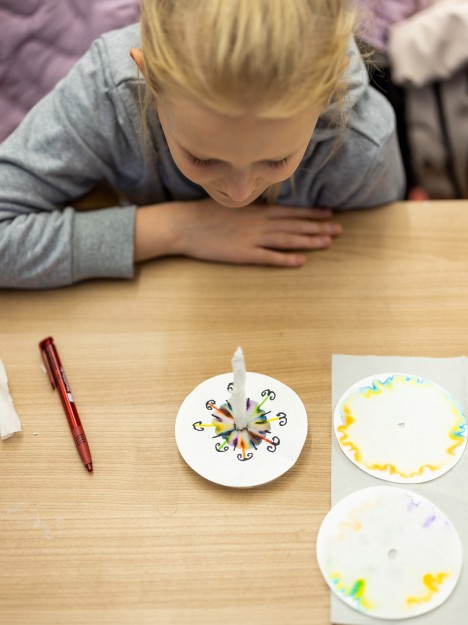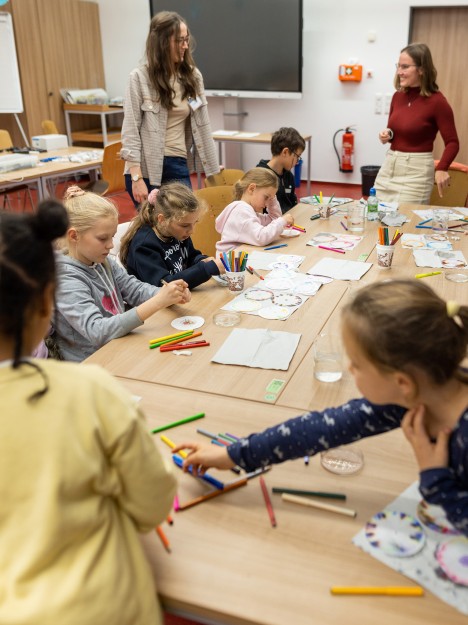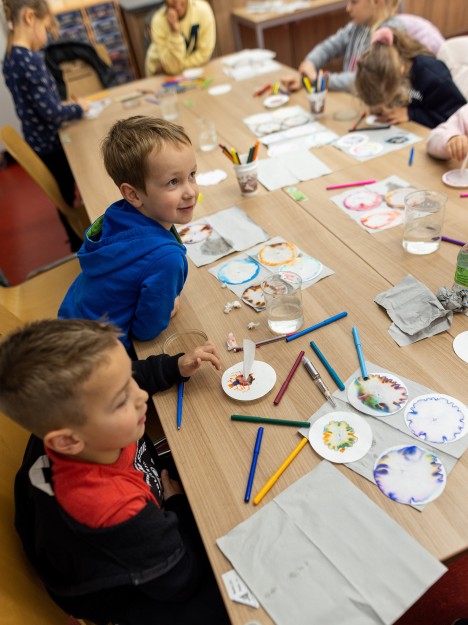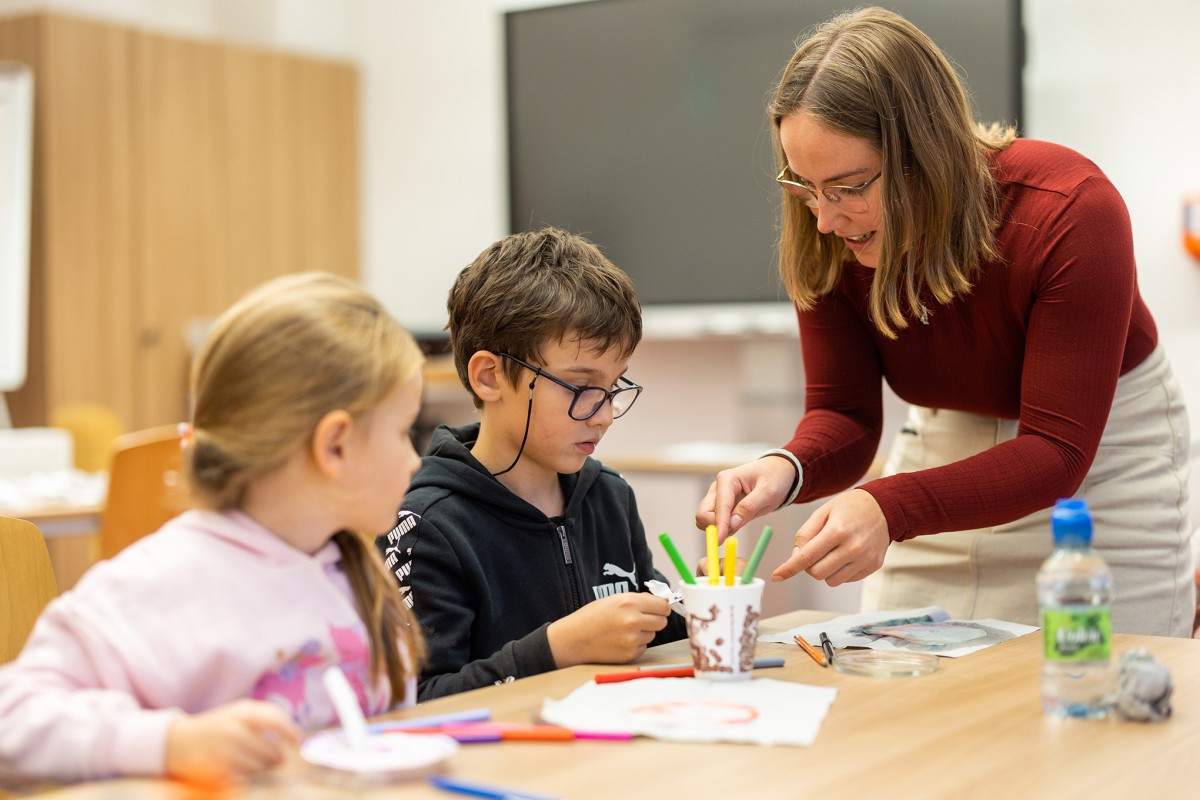
Reducing language barriers and promoting self-confidence
What was previously black is now coloured – and the fish now looks like a flower: one early evening on a Wednesday in late October, five girls and three boys of primary school age sit at a table in Münster University’s “MExlab ExperiMINTe” laboratory for schoolchildren. They are astonished to see how the water is drawn into painted filter paper and washes the pictures into fanciful forms and, in the process, breaks down the colours from felt-tip pens into their individual colour components. While playing, they thus learn the principle of chromatography.
The workshop takes place on a regular basis at the University of Münster. But this time there is something special: the main language is Russian. Although Jesco and Wiebke, the two student coordinators, speak German, their colleague Valeriia Ahlborn translates into her mother tongue of Russian. The reason is that the children come from Ukraine and fled to Münster to escape from the war. “Many of them hardly speak any German,” says Valeriia Ahlborn, 29, a PhD student of physics. “That makes it very difficult to explain things to them if you don’t speak Ukrainian or Russian. Many of the refugees come from eastern Ukraine, and there most of the children grow up bilingually and are able at least to understand Russian.”
The fact that the “MINT4all” workshops are being offered is due to Ahlborn’s dedication. She comes from Moscow and has been a research associate since 2018 in the “Non-Linear Photonics” working group. “When the war began, I wanted to support the Ukrainians who were forced to leave their homeland because of Russian armed aggression,” she remembers. As she had already had some experience in science teaching – gained during her time as a student in Moscow and on Girls’ Day – she had an affinity with the experimental MINT Workshop format. MINT stands for Mathematics, Informatics, Science and Technology. In collaboration with “MExLab ExperiMINTe”, the umbrella organisation of the MINT experimental labs at Münster University, as well as with the “Q.UNI” university for children and young people, the idea for the project soon took shape in a concrete form. With support from the University’s Fundraising Department – and input from the Wertestiftung Münsterland Foundation and from a private donor – funding was found to enable the project to be put into practice.
“With ‘MINT4all’ we not only want to teach children something about scientific phenomena, but also help to reduce language barriers and strengthen children’s self-confidence after their experiences as refugees,” explains Dr. Dörthe Masemann, the administrative director of MExLab ExperiMINTe. In future, many of the workshops will take place in refugees’ accommodation.
Valeriia Ahlborn has been a volunteer translator for refugees since the war began, and now she also translates in the workshops together with other volunteers who help out. Do the children or their parents find it odd that a Russian is helping in the workshops? “No,” says Ahlborn. “So far, no one has asked me here where I come from. Quite the opposite: the children are grateful for what we offer them and are pleased when they have overcome the first language barrier to understanding.”
Author: Christina Hoppenbrock
This article was first published in the University newspaper “wissen|leben” No. 7, 16 November 2022
Volunteers wanted:
The project team is looking for more students, University staff or alumni who would like to volunteer to help in the workshops of the “MINT4all” project and teach children and young people something about scientific phenomena. People who speak Ukrainian or Russian are particularly welcome. Anyone interested can get in touch at mint4all@uni-muenster.de.

